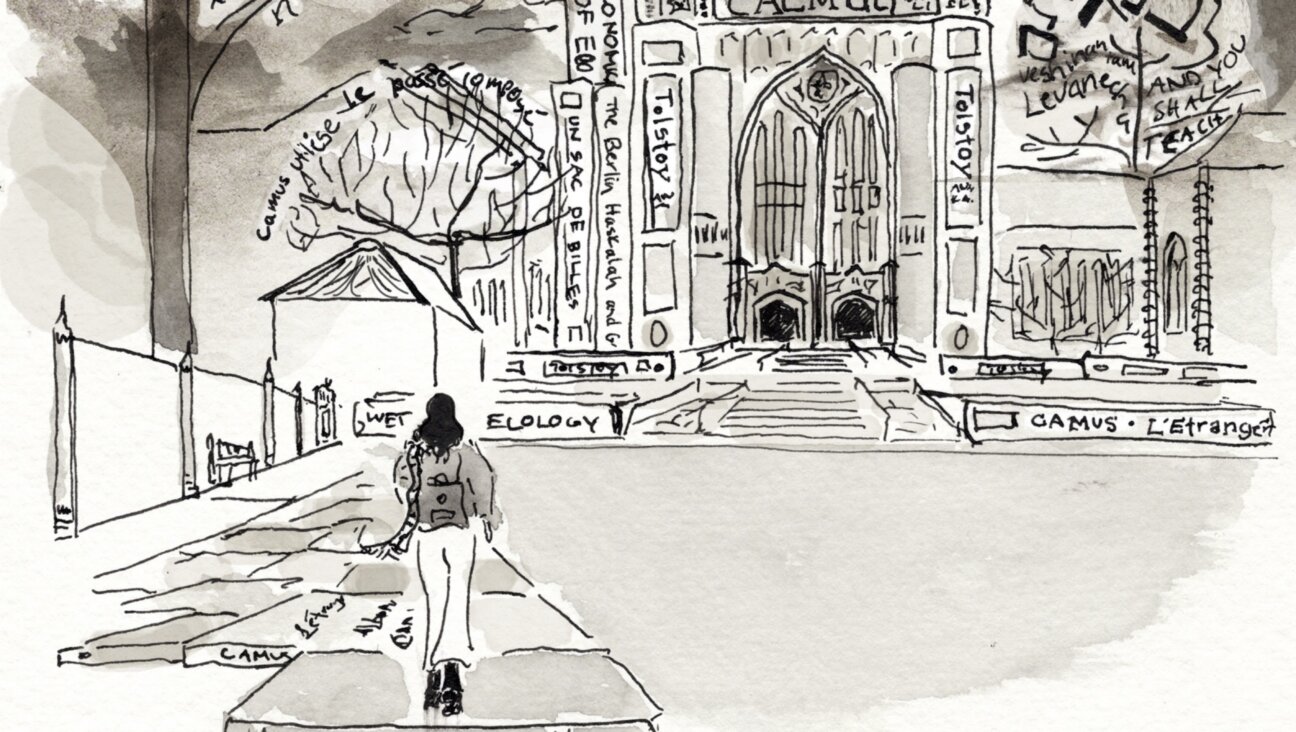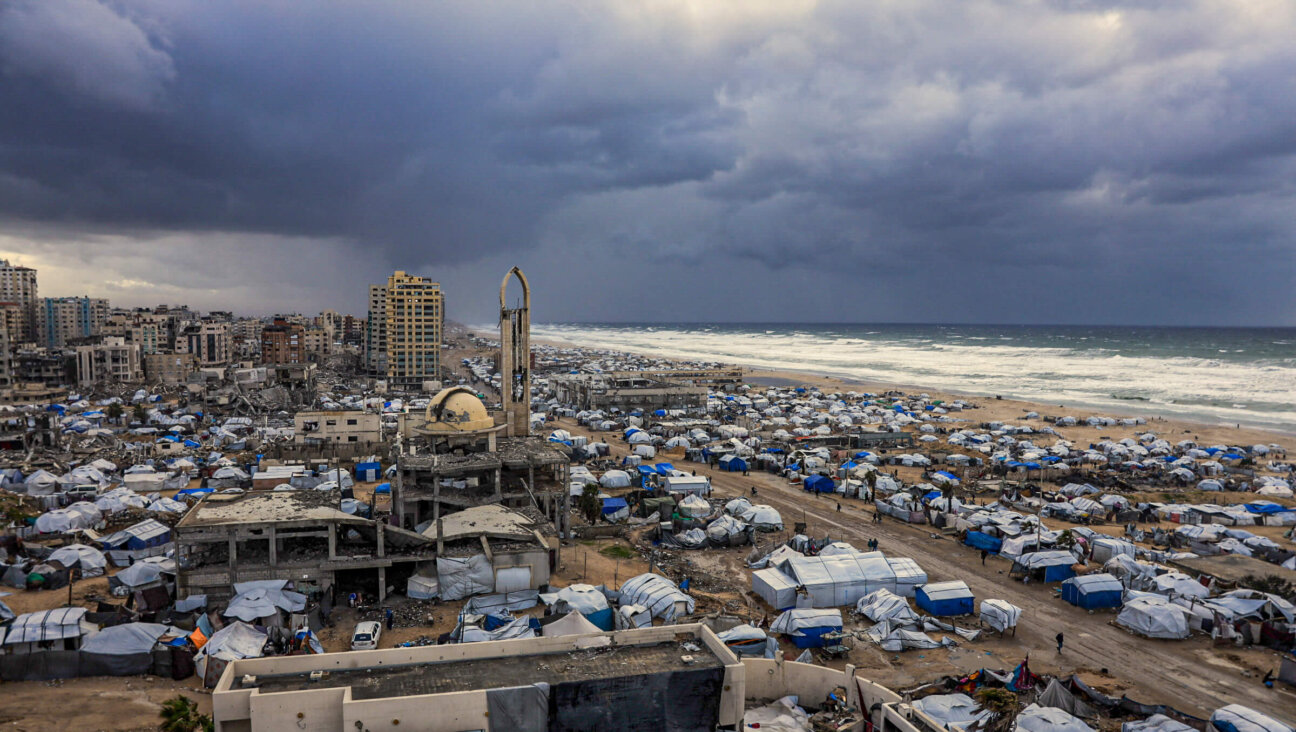What Palestinians Need in Order To Believe in the Peace Process
Since a cease-fire was declared February 8 in Sharm el-Sheikh, the Palestinian people have demonstrated their desire to end the bloodshed with Israel. We have acknowledged that the security of Israeli and Palestinian civilians is a legitimate concern. Moreover, the recent elections in Palestine have demonstrated to the world that the Palestinian people are committed to democracy and fully capable of governing their own independent state.
But let us be clear: The security of Israelis cannot reasonably be divorced from that of Palestinian civilians, whose collective security has been shattered by 38 years of Israeli occupation. If peace is to have a chance of truly taking hold, Israel cannot demand a seemingly endless list of security concessions from the Palestinians while ignoring the core issues of the conflict.
The occupation has placed overwhelming restrictions on millions of lives for almost four decades. It has severely disfigured, if not destroyed, hundreds of thousands of Palestinian families, neighborhoods and livelihoods. Even during the Oslo years, the settlers more than doubled their population and vastly intensified their stranglehold over Palestinian land, water and movement — a stranglehold that the separation wall being built by Israel is set to entrench even further.
Israel’s tunnellike focus on security at the expense of core issues has repeatedly proved to be a recipe for failure and disaster. It pushes the Palestinian Authority into a corner by forcing it to become a security subcontractor for occupation — a police state against its own people. This situation is not only untenable, unstable and dangerous to both Palestinians and Israelis, but it is also the direct opposite of democracy and justice.
There is a clear majority in Palestinian society, as well as in most of the world and hopefully in Israel, regarding what the minimum of justice for Palestinians looks like: a fully sovereign Palestinian state with East Jerusalem as its capital, the Green Line as its border, the dismantling of settlements and of the separation wall, and a practical solution to the refugee problem. Simply put, Palestinian support for the peace process will depend on the perceived chances for this vision to be implemented within a reasonable timeframe.
Prime Minister Sharon’s words at last week’s Sharm el-Sheikh summit, unfortunately, give little cause for optimism. He said nothing that contradicted his plan to annex large chunks of the West Bank by routing the separation wall away from the Green Line. And he did not even mention the continued expansion of settlements on Palestinian land. Doesn’t Sharon realize that these actions are a severe and direct threat to the peace process?
Israeli sources have admitted in the face of overwhelming evidence that the routing of the separation wall is not about security, but rather about unilaterally imposing borders and expropriating as much Palestinian land as possible before negotiations on final-status issues can begin. Doesn’t Sharon realize that this is a blatant violation of the Road Map and of international law?
The peace process has only just begun, and it is already dangerously deformed. Palestinians are fulfilling their obligations, while Israel has granted only a few token concessions and continues to implement plans that are diametrically antithetical to peace and justice.
Sharon knows that he must choose between the separation wall and a viable Palestinian state. To continue building the wall during this fragile window of opportunity is a devastating vote of no confidence for the prospect of peaceful coexistence. It is inconceivable that his tactic of talking peace while obviating justice will be allowed to go on for very much longer without consequences.
If what Sharon means by the “end of the occupation” is the completion of the separation wall and the carving up of the West Bank into noncontiguous areas to be fatuously called a “Palestinian state,” such an end will only be the beginning of a new generation of devastating conflicts that could easily boil over into regional war.
Three preliminary signs will be taken as evidence that Israel is truly interested in peace, and will be necessary to give Palestinians the hope and confidence they need to support the process and end violence at all levels. First, Israel’s formal acceptance of and commitment to the Road Map — which means, at a minimum, immediately freezing all settlement construction and dismantling all illegal outposts. Second, freezing construction of the separation wall in anticipation of the day when Israel will conform to the International Court of Justice ruling by dismantling the wall completely and compensating all victims. And third, immediate engagement in final-status negotiations, including the status of East Jerusalem, the final borders of the Palestinian state and a solution for refugees.
Israel today faces no existential threat, and it has no easily demonizable counterpart at the Muqata. Sharon’s government is out of excuses. It is now faced with the simple question of whether or not it is willing to be a good neighbor in the Middle East, of whether it prefers other people’s property over peace and security.
For the sake of both the Palestinian and Israeli peoples, it is imperative that the international community not allow this precious window of opportunity to go to waste. The best way to escape from the dead end of another mendacious interim deal destined to lead to another devastating crisis is an international peace conference resulting in a resolution based on international law.
In considering this proposal, it is important to remember that the Palestinian people are not bargaining for concessions or spoils, but rather for the minimum of justice that has been denied to them during 57 cataclysmic years of war, dispossession and occupation. We are only asking to live in peace and freedom on 23% of historic Palestine.
Dr. Mustafa Barghouti, a candidate for Palestinian Authority president in the January election, was a delegate to the Madrid peace talks in 1991.
















